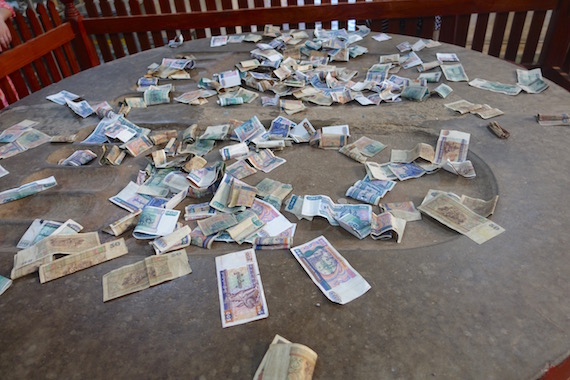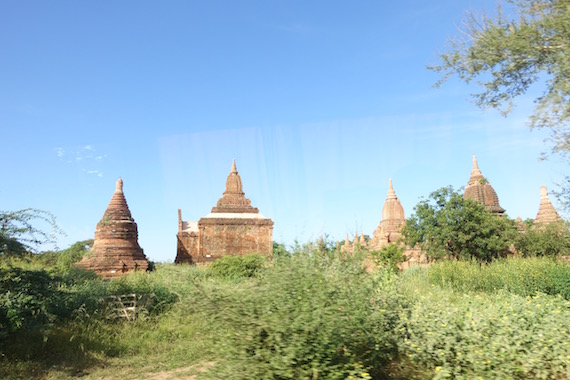When visiting the temples, you need to remove your shoes. Socks is also not allowed. So the best footwear to use are slippers so it’s easier to remove and put on. 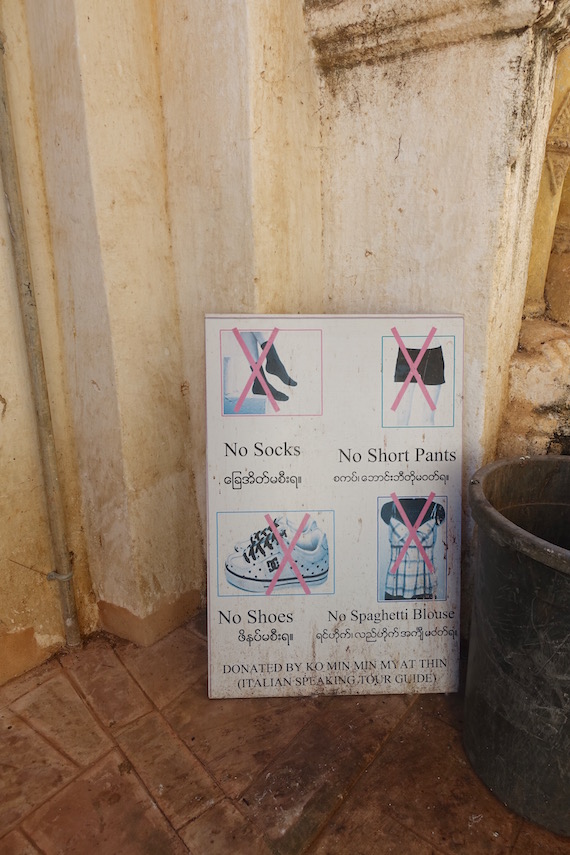
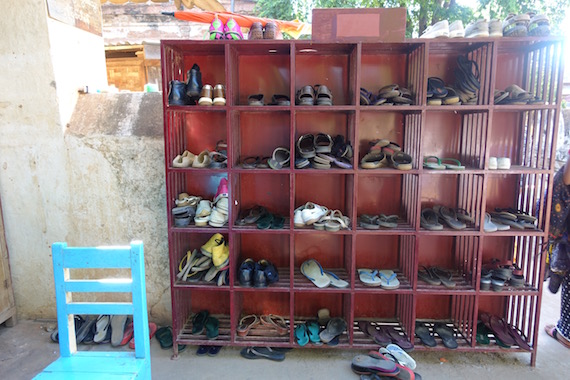 Bagan! Who counts the stupas, the temples and the caves? Nearly 2.500 dot the plain at a bend of the mighty river. According to the history books there have been more than 7.000 religious buildings in Bagan when it was at the pinnacle of its power. Especially the smaller ones faded away over the centuries but what is left is certainly the most impressive sight in South East Asia, only rivaled by Angkor! You visit some of the most impressive of Bagan’s temples. The stupa Shwezigon was the first monumental building in Bagan – it was here, that the wise king Anawrahta incorporated the cult of Nats (spirits) into Theravada-Buddhism and to this very day the spirits command high respect among the people of Myanmar. Not far from the Shwezigon is the temple Gubyaukgyi-Tempel in the village of Wetkyi-In. The murals from the 13th century are in remarkably good condition. Sulamani temple is the model for all temples of the late period (1180-1287) which ended with the Mongol invasion. Enjoy the sunset on top of a stupa and you will remember the scenery for a long, long time: pagodas as far as the eye can see and the Ayeyarwady River in the West. The sun settles behind the hills on the West bank of the river and when the weather is fine you might even see as far as to the Chin Hills. ( Easter Crossings Guide )
Bagan! Who counts the stupas, the temples and the caves? Nearly 2.500 dot the plain at a bend of the mighty river. According to the history books there have been more than 7.000 religious buildings in Bagan when it was at the pinnacle of its power. Especially the smaller ones faded away over the centuries but what is left is certainly the most impressive sight in South East Asia, only rivaled by Angkor! You visit some of the most impressive of Bagan’s temples. The stupa Shwezigon was the first monumental building in Bagan – it was here, that the wise king Anawrahta incorporated the cult of Nats (spirits) into Theravada-Buddhism and to this very day the spirits command high respect among the people of Myanmar. Not far from the Shwezigon is the temple Gubyaukgyi-Tempel in the village of Wetkyi-In. The murals from the 13th century are in remarkably good condition. Sulamani temple is the model for all temples of the late period (1180-1287) which ended with the Mongol invasion. Enjoy the sunset on top of a stupa and you will remember the scenery for a long, long time: pagodas as far as the eye can see and the Ayeyarwady River in the West. The sun settles behind the hills on the West bank of the river and when the weather is fine you might even see as far as to the Chin Hills. ( Easter Crossings Guide )
Stupas are structures that are solid while the temples are hollow and structures where you can go in and worship
There are many temples in Bagan so our guide just chose the best ones
Ananda temple ( side ) is the highlight of any visit to Bagan: it was built under King Kyanzittha at the end of the 11th Century A.D. This was built by one of the favorite disciples of Buddha

The magnificent Ananda temple is home to four giant statues of the four Buddhas of our era: Kakusandha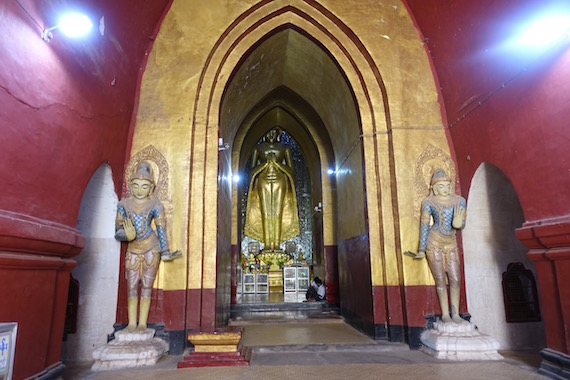

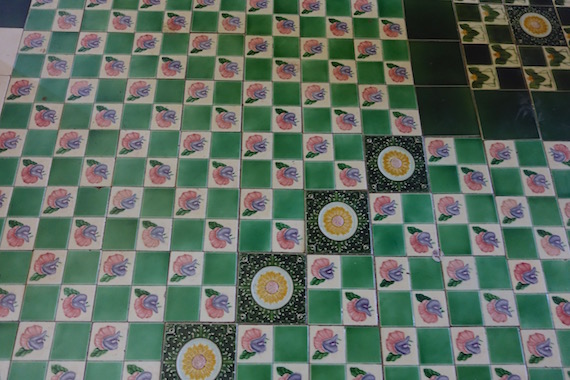
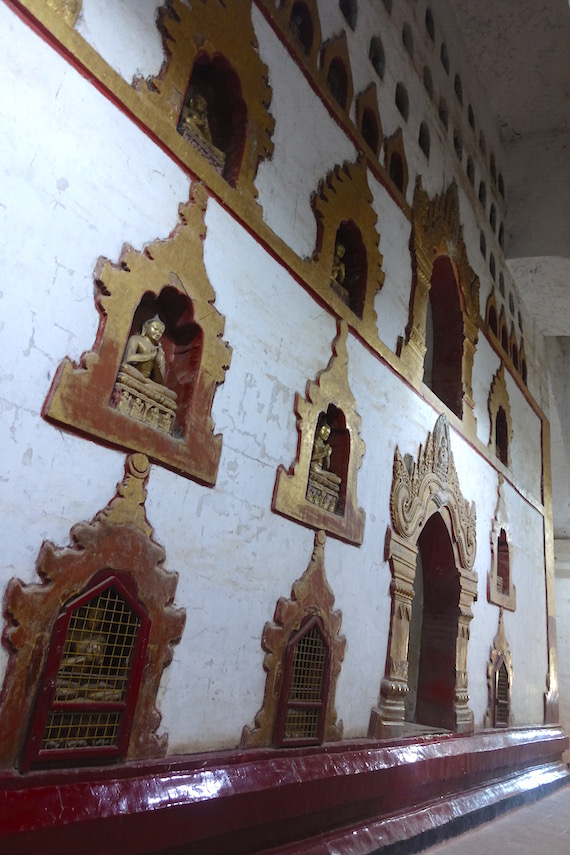 Konagamana
Konagamana Kassapa
Kassapa 

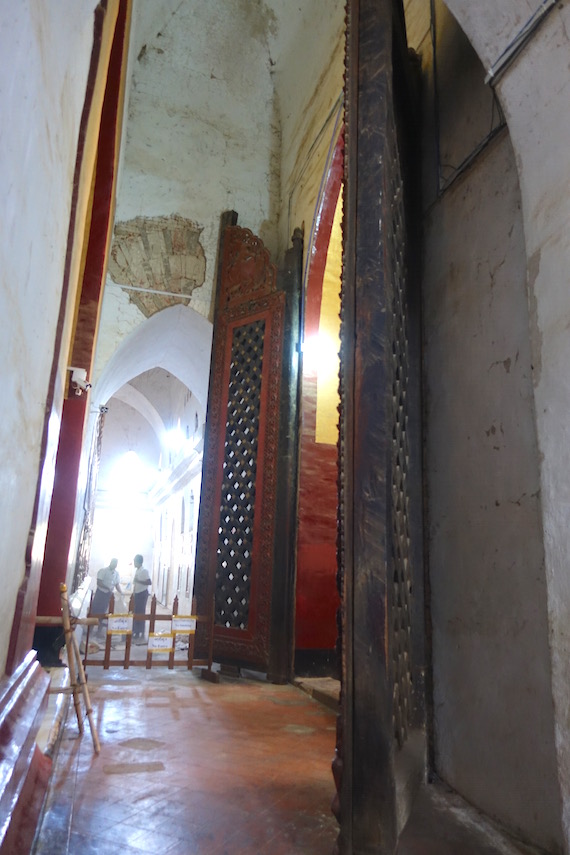 and of course Gotama, the historical Buddha ( under refurbishment not in photo ). His story is told in the ambulatory of the temple.
and of course Gotama, the historical Buddha ( under refurbishment not in photo ). His story is told in the ambulatory of the temple.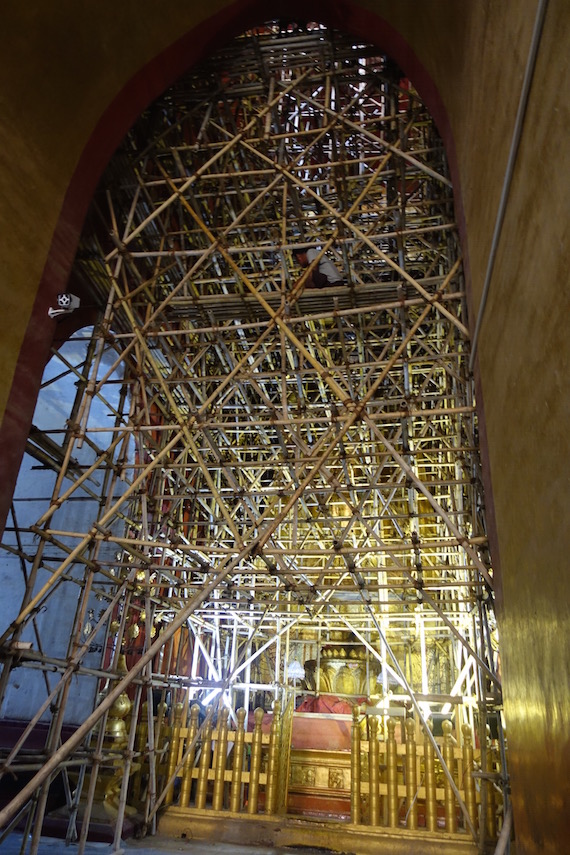

Donation boxes – you can choose where you want to donate to refurbish different parts of the temple 🙂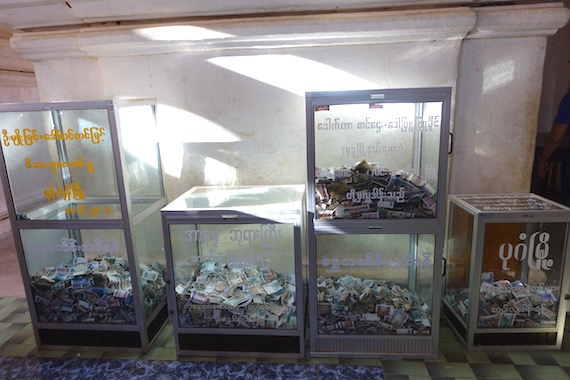
We visited several temples around Bagan as chosen by our guide, Dr. Axel
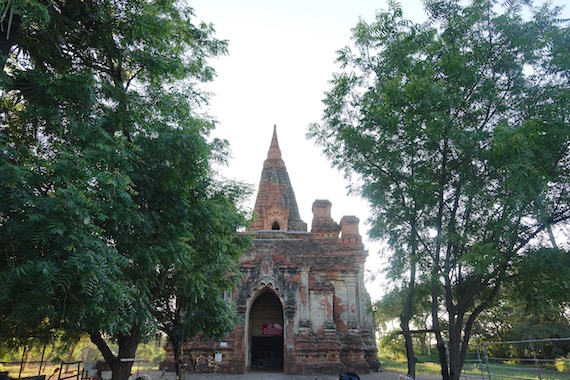

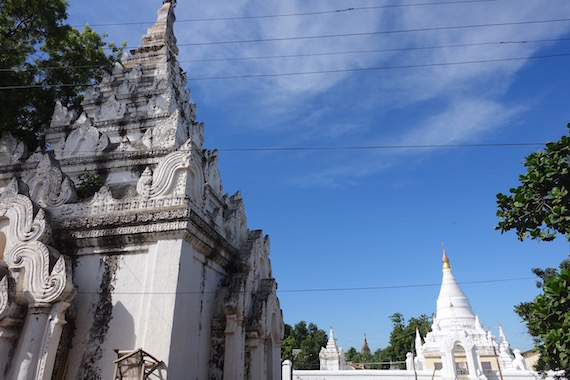
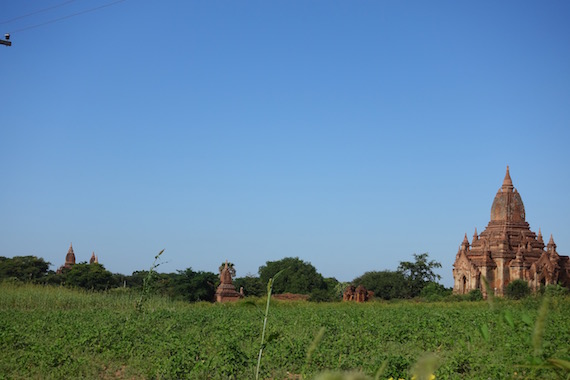
Gubyaukgyi Temple – many beautiful temples in Bagan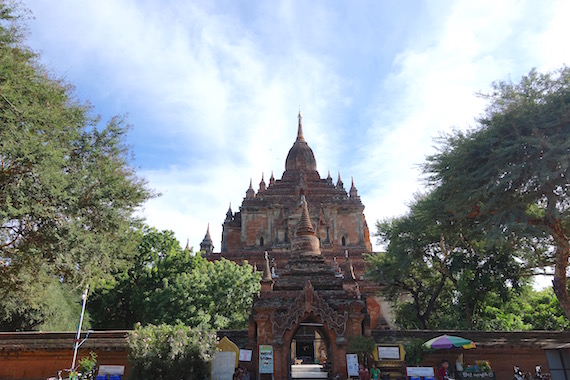
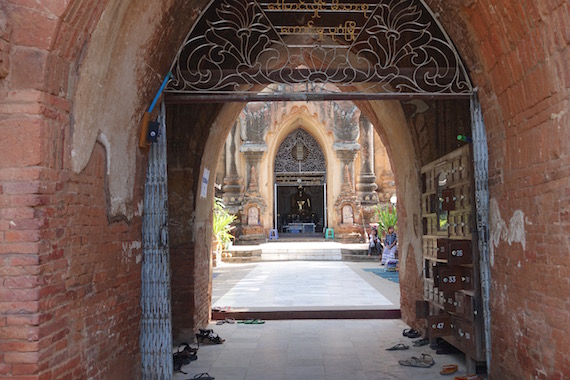
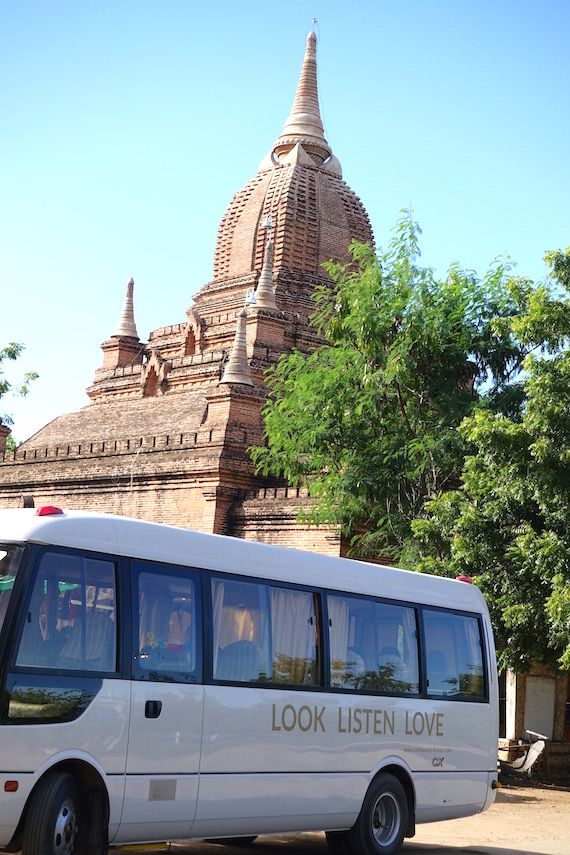
While driving around Bagan, you will see many temples like these – many small ones. Temples/Pagodas were built by individuals as a form of thanksgiving to Gautama 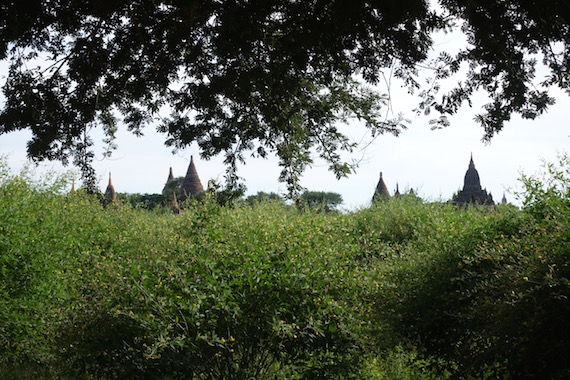
Many Neem trees in Bagan
The NEEM tree (Azadirachta indica) is a tropical evergreen tree native to India and is also found in other southeast countries. In India, neem is known as “the village pharmacy” because of its healing versatility, and it has been used in Ayurvedic medicine for more than 4,000 years due to its medicinal properties. Neem is also called ‘arista’ in Sanskrit- a word that means ‘perfect, complete and imperishable’. The seeds, bark and leaves contain compounds with proven antiseptic, antiviral, antipyretic, anti-inflammatory, anti-ulcer and antifungal uses. The Sanskrit name ‘nimba’ comes from the term ‘nimbati syasthyamdadati’ which means ‘to give good health’.
The Shwe San Daw Temple which is known for getting nice sunset views of Bagan. You have to climb up the temple and await the sunset. We were not able to do it this trip
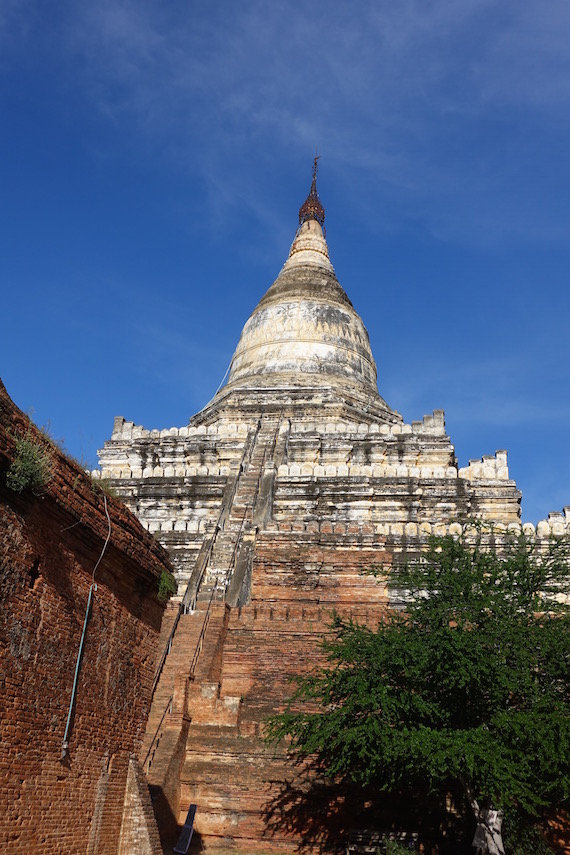
The biggest lying Buddha at the Shwe San Daw Temple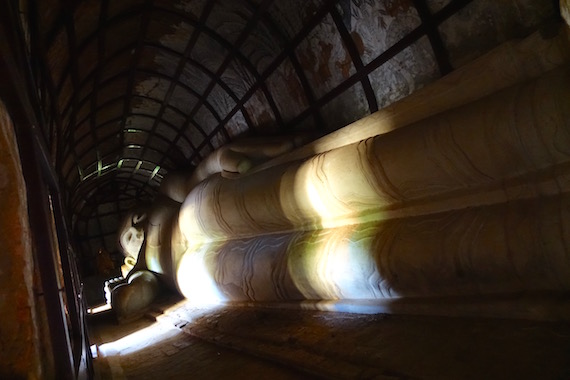

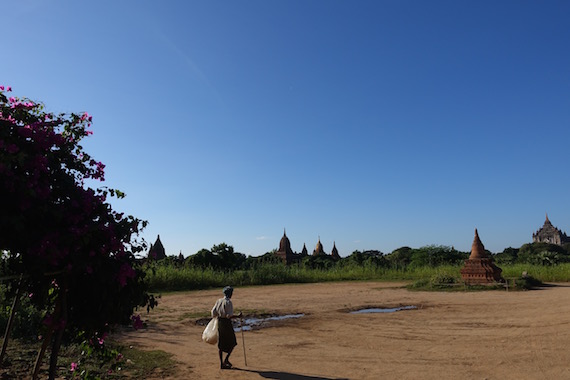
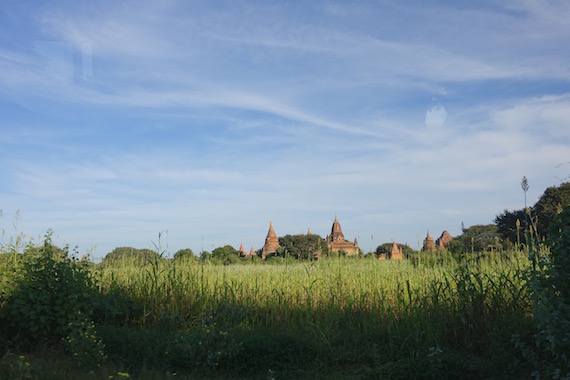

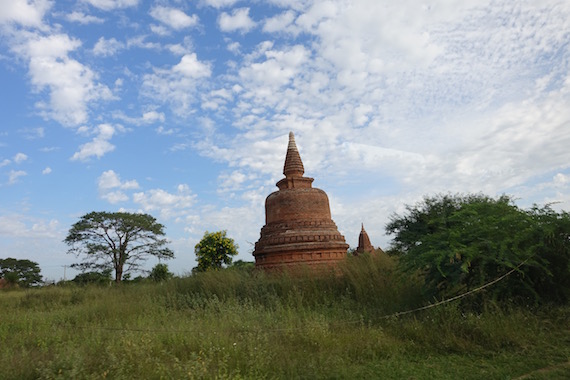
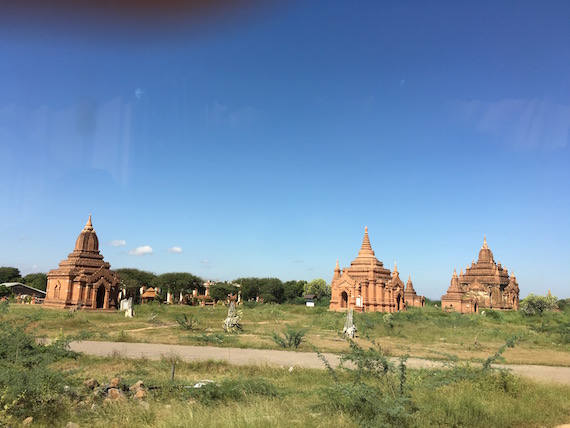
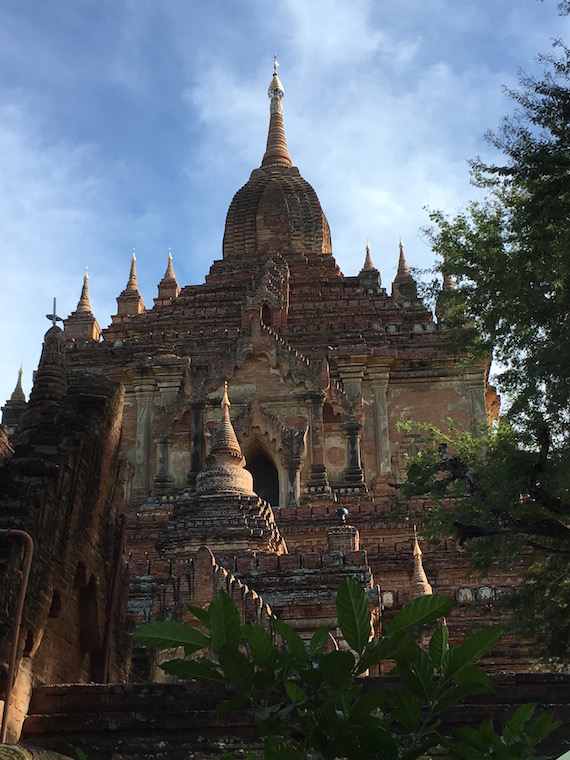
Click below

